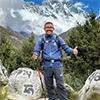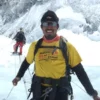Is Nepal safe for traveling?
When someone mentions Nepal, your first thought undoubtedly goes to Mount Everest. If that doesn’t immediately spring to mind, then consider highlands in general. This little landlocked nation is home to eight of the world’s ten tallest peaks.
However, beauty does not make something safe from harm. Nepal experiences earthquakes frequently, and whenever they do, the devastation is permanent. Along the journey, you’ll also have to deal with some insane natives and terrible infrastructure.
A coin always has two sides to it and so this the trekking experience in Nepal. Here, we will talk about all the aspects of safety while traveling in Nepal.
Crimes
You rarely hear any serious crimes occurring in Nepal, that’s because it’s a rare event. Nepal is actually among the safest countries you can visit in Asia. Although there may not be CCTV camera on every corner of the cities but you are far less likely to be robbed as well. Our agency has never heard from any one of our clients that they got robbed or mugged, that just does not happen.
Specially while traveling in the mountain regions, crime rates are all time low. Crime rates are so low that some villages have no law enforcements at all. Everyone knows everyone in these remote villages as their survival depends on supporting each other and trading things with each other. In such a community, heinous crimes are unheard of.
Most of the people you will meet during this trek will be welcoming, and trust worthy. The mountain people are pure of heart and will even go beyond their capability to serve you.
Natural Disasters
Because of its location, geology, and the effects of climate change, Nepal is vulnerable to several hazards that result in numerous disasters that cause a great deal of annual economic damage and loss of life.
The Himalayan region of Nepal is particularly prone to earthquakes, landslides, avalanches, and GLOFs (Glacial Lake Outburst Floods) due to its steep terrain, high seismicity, fragile geological formation, and intense and highly variable precipitation.
As a growing number of people travel to hilly regions for hiking, exploration, and expeditions, mountain disasters pose a hazard to both locals and visitors.
Altitude Sickness
For trekking and hiking, people from every corner of the world visit Nepal. With the courageous and adventurous aiming to reach the summit, many travel to Manaslu Base Camp, or the famous Everest Base Camp.
Altitude sickness is one potential adverse effect of these multi-day excursions. Many of us think that this is something that it will not affect us, yet many hikers in Nepal have had altitude-related symptoms at some time, and they may be quite hazardous if not addressed.
The air is thinner the higher we ascend on the trail, and we require oxygen for our survival. This implies that your body will start to slow down and each breath that you draw is going to have less oxygen as you ascend.
The human body is amazing in that it can adjust, but you have to give it time, which is the reason acclimatization days are crucial. To transport more oxygen, the human body will begin to generate more red blood cells, but sadly, this process takes time. Increasing altitude too rapidly might have major negative effects.
Food Poisoning
The main obstacle to being healthy in Nepal is what kind of food and liquids you consume. There are no places where you can consume tap water, and all summer long, tainted water supplies lead to a number of diseases like diarrhea, cholera, and dysentery. Because Kathmandu is a filthy city, you’ll have a greater chance of remaining physically healthy for all of your sightseeing if you wash your hands frequently with soap or by using a disinfectant.
Our knowledgeable guides will be able to steer you away from dangerous areas and to some secure dining establishments throughout your visit. To avoid food-borne diseases you must follow some preventive measures.
You must steer clear of uncooked fresh veggies. Even the salad used on your burger is more likely to carry dangerous germs when it is raw. Moreover, you must eat vegetarian cuisine whenever possible.
During your trekking days, you will find a lot of eateries that don’t have freezers, thus it’s likely that the food that you’re eating was leftover from the previous day or the night before. Consume foods that are prepared instantly and cooked thoroughly, such as dhal bhat, which is available almost anywhere.







